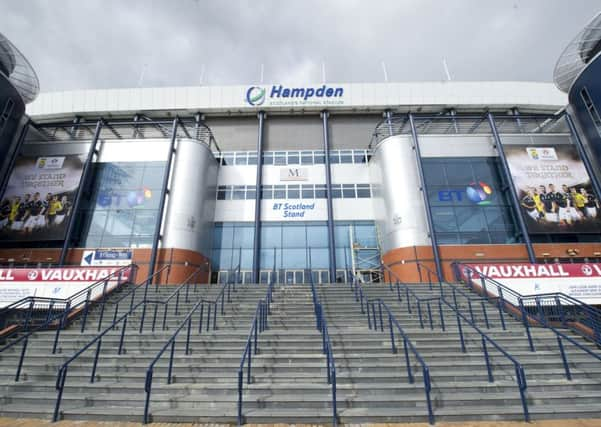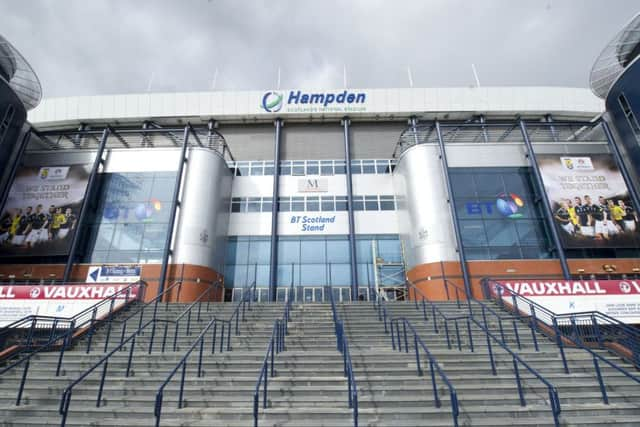National stadium: Hobson's choice facing SFA's secret seven


Neither Hampden nor Murrayfield can tick all the boxes. Murrayfield is a first-rate arena but there are secondary issues that dilute its attractiveness. Hampden is a second-rate arena but has first dibs on a number of other factors entitled to be expected from the home of Scottish football.
For starters, that happens to be its current status. Unlike Murrayfield, where the football fraternity would have lodger status. The acknowledgement that the rugby fixture schedule would take priority over football when it came to staging matches pretty much gave the game away on that front.
Advertisement
Hide AdAdvertisement
Hide AdPeople talk of the century-long history Hampden possesses as one of its great saving graces. Yet, it is this very history that has led to this sorry juncture. The SFA are merely tenants in a grubby, bowl-shaped arena with innumerable poor sight-lines for spectators. The 52,000-seater stadium is owned by an amateur club, Queen’s Park, that, on a good day, attracts crowds of 600 for League Two games.


However, many times you turn that over in your mind it remains nonsensical. As does the fact that Queen’s Park were allowed to botch Hampden’s redevelopment in the 1990s at great cost. And not just in monetary terms. That cost has been borne by all those short-changed watching games in the distant stands behind each goal. The recognition that Hampden must be owned, and not just operated, by the SFA can solve one problem. Until three sides of it is rubbled and reconfigured, other intractable issues with it won’t be. And there just isn’t £50 million-plus that the SFA could find down the back of a couch in their sixth floor offices, unfortunately...
The stadium in its current guise can’t generate the revenue that would be forthcoming from the 67,000-capacity Murrayfield were it to be filled for all footballing occasions. But could the Edinburgh stadium deal with the issues of security, safety and crowd management in the event of 50,000-plus Celtic and Rangers supporters making their way along the same motorway and same train lines in the event of a cup tie collison.
A real stumbling block, it helps explain why the appeal of sacrificing a stadium dedicated to football – however down at heel it might be – for one in which the game would be essentially only a sideline seems to be waning.
Advertisement
Hide AdAdvertisement
Hide AdUltimately, though, the wrong question has been asked in the great Hampden debate. The real poser is whether Scotland, unlike Spain, Italy and Germany, required a national stadium. The fact is that it does not. The top-class stadia provided by Celtic, Rangers, Hearts and Hibernian – and, in time the new arena Aberdeen are constructing – would have easily served all of Scottish football’s needs. And ensured that the money generated would remain in football and be, in part, shared by clubs that between them were watched by almost two-thirds of all those that paid to watch the Scottish game last season.
This is where any sympathy for those within the SFA becomes mightily strained. They wouldn’t even countenance moving the games around in such a fashion; weren’t interested in exploring this avenue and closed it off months ago.
As with their failure to deal with the ludicrous Queen’s Park-Hampden ownership anomaly decades ago, they have stored up difficulties for themselves, and the Scottish game. They possess neither the vision nor the hard-cash to fix. So often the Hampden story.